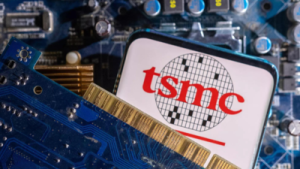Bananas are among the most popular fruits worldwide, thanks to their natural sweetness and nutritional benefits. For people with diabetes, the common question is whether bananas are safe to eat. The answer is yes, when eaten in moderation and paired with healthy habits. Bananas provide essential nutrients like potassium, vitamin B6, vitamin C, and fibre, which support heart health, digestion, and overall well-being.
However, they do contain natural sugars and carbohydrates, which can impact blood glucose levels. Choosing slightly unripe bananas, monitoring portion sizes, and pairing them with protein or healthy fats can help manage blood sugar while enjoying this nutritious fruit.
Diabetes Management Made Simple: 5 Yoga Asanas That Work
How bananas affect blood sugar: The role of Glycaemic Index
A study published in ResearchGate examined how ripe bananas affect blood glucose levels in both healthy and diabetic adults. The findings support that the ripeness of bananas significantly influences their impact on blood sugar. This is because the glycaemic index (GI) changes as bananas ripen.
Unripe bananas have a low GI of around 30–42, meaning they raise blood sugar slowly. As they ripen, the GI increases to 51–62, which is moderate, and overripe bananas have an even higher GI, causing a quicker spike in blood glucose.
For people with diabetes, slightly unripe or just-ripe bananas are a better choice, as they release sugar gradually and help prevent sudden spikes in blood sugar.
Why bananas can be diabetes-friendly
Despite their natural sweetness, bananas can still fit into a diabetic-friendly diet when eaten in moderation. Their fibre content helps slow sugar absorption, preventing rapid blood sugar spikes. The resistant starch in unripe bananas improves insulin sensitivity and supports gut health.
Additionally, bananas are an excellent source of potassium and magnesium, two minerals that promote heart health and may aid in blood sugar regulation. For people with diabetes, managing heart health is just as important as controlling blood glucose, making bananas a valuable addition when consumed wisely.
Nutritional benefits of bananas
Rich in essential nutrients: Bananas are loaded with important nutrients, making them a healthy choice for daily diets. They are particularly high in potassium, which helps regulate blood pressure and supports proper heart function.
- Good source of vitamins: They provide vitamin C, which boosts immunity and helps in cell repair, and vitamin B6, which is essential for metabolism and nerve health.
- High in dietary fibre: The fibre content in bananas not only supports healthy digestion but also slows sugar absorption into the bloodstream, which helps maintain stable blood sugar levels.
- Packed with antioxidants: Bananas contain antioxidants like dopamine and catechins, which protect the body from oxidative damage and reduce inflammation.
- Benefit of unripe bananas: Unripe bananas are rich in resistant starch, a type of carbohydrate that acts like fibre. Resistant starch promotes gut health and may improve insulin sensitivity, which is especially beneficial for people managing diabetes.
Smart tips for eating bananas with diabetes
If you want to enjoy bananas without impacting your blood sugar too much, follow these tips:
- Choose slightly unripe bananas: They have more fibre and less sugar compared to fully ripe ones.
- Watch portion sizes: Half a banana is a reasonable serving for most diabetics.
- Avoid overripe bananas: They have the highest sugar content and the least fibre.
- Pair with protein or healthy fat: This helps slow sugar absorption and prevents glucose spikes.
FAQs
Q. Can I eat bananas every day if I have diabetes?
Yes, but stick to small portions, like half a banana, and balance it with other low-carb foods.
Q. Are unripe bananas better for blood sugar?
Yes, because they contain more resistant starch and have a lower glycaemic index than ripe bananas.
Q. Do bananas cause weight gain for diabetics?
Not if eaten in moderation. Their fibre content helps keep you full and prevents overeating.
Q. Should I avoid bananas completely if I have diabetes?
No. Bananas can be part of a balanced diet, as long as you watch your portions and avoid overripe ones.
Disclaimer: This article is for informational purposes only and does not constitute medical advice. Always consult a qualified healthcare professional before making any changes to your health routine or treatment.
Also read | Matcha side effects: How overconsumption can affect liver and digestion
 India Enters New Space Age as Astronaut Shukla Joins ISS Mission
India Enters New Space Age as Astronaut Shukla Joins ISS Mission
 X Cracks Down: Half a Million Indian Accounts Suspended for Policy Breaches
X Cracks Down: Half a Million Indian Accounts Suspended for Policy Breaches
 Google Unveils Strategy to Combat Misinformation, Boost Voter Access in India's 2024 Elections
Google Unveils Strategy to Combat Misinformation, Boost Voter Access in India's 2024 Elections
 Hair Oil vs. Hair Serum: Which is the Right Choice for Your Hair?
Alternatively:
Unlock Your Best Hair: Choosing Between Hair Oil and Serum for a Healthy Mane
Hair Oil vs. Hair Serum: Which is the Right Choice for Your Hair?
Alternatively:
Unlock Your Best Hair: Choosing Between Hair Oil and Serum for a Healthy Mane
 Bollywood's 'Swades' Anthem Joins Axiom-4 Mission: Indian Astronaut's Playlist Honors Heritage in Space
Bollywood's 'Swades' Anthem Joins Axiom-4 Mission: Indian Astronaut's Playlist Honors Heritage in Space
 Vijay Sethupathi Apologizes Amid Controversy Over Son's Film 'Phoenix'
Vijay Sethupathi Apologizes Amid Controversy Over Son's Film 'Phoenix'
 New York Assemblyman Zohran Mamdani's Style: 5 Lessons in Authenticity and Heritage
New York Assemblyman Zohran Mamdani's Style: 5 Lessons in Authenticity and Heritage
 Colon Cancer: Don't Ignore These 5 Early Warning Signs
Colon Cancer: Don't Ignore These 5 Early Warning Signs
 TSMC Regains Top 10 Global Value Ranking Amid AI Boom
TSMC Regains Top 10 Global Value Ranking Amid AI Boom
 Android Users Urged to Update Devices Amid High-Severity Security Flaws: Government Issues Warning
Android Users Urged to Update Devices Amid High-Severity Security Flaws: Government Issues Warning